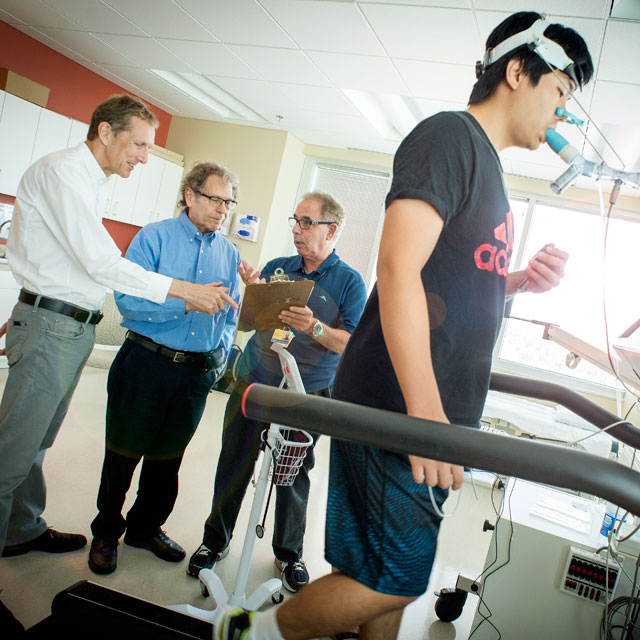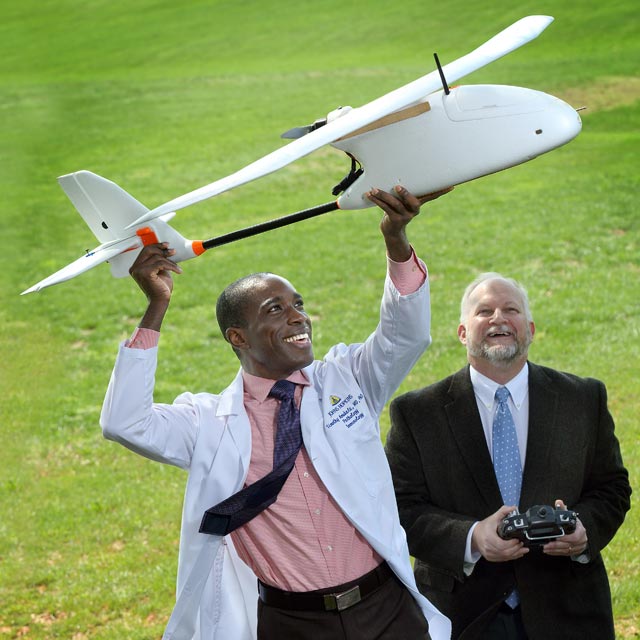Johns Hopkins Medicine and Kaiser Permanente are expanding their two-year-old research collaboration through four new studies focused on improving patient care.
Johns Hopkins Medicine and Kaiser Permanente recently awarded a total of $300,000 in grants to four research studies that began in April 2017 and will run through March 2018. Oversight for each study includes researchers from both institutions aiming to improve the quality and effectiveness of patient health care and develop new best practices, based on clinical care data. The collaborative studies are:
1. Racial Disparities in Hypertension (RADISH): Decomposing the Effects of Risk Factor Distribution and Risk Factor Impact on Racial Disparities.
Principal Investigators: Suma Vupputuri, Ph.D. (Kaiser Permanente) and Romsai Tony Boonyasai, M.D. (Johns Hopkins)
2. Evaluating the Uptake of Screening and Preventative Strategies for Patients at High Risk for Breast Cancer.
Principal Investigators: Kala Visvanathan, M.D. (Johns Hopkins) and Monica Ter-Minassian, Sc.D. (Kaiser Permanente)
3. Estimating changes in liver fibrosis over time and in specific subgroups with transient elastography (TE).
Principal Investigators: Carla V. Rodriguez, Ph.D. (Kaiser Permanente) and Tinsay Woreta, M.D. (Johns Hopkins)
4.Assessing the Relationship between Parental Activation and Obesity-Related Health Behaviors Among Overweight and Obese Low-Income Racial/Ethnic Minority Young Patients.
Principal Investigators: Nakiya N. Showell, M.D. (Johns Hopkins) and Deborah Rohm Young, Ph.D. (Kaiser Permanente)
“The strength of the science, the innovation of new treatment interventions, and our ability to leverage our integrated care systems to support these research efforts are truly breathtaking,” says Peter Pronovost, M.D., Ph.D., senior vice president of patient safety and quality for Johns Hopkins Medicine and director of the Armstrong Institute. “These projects will help spur innovation, deliver new knowledge and, most importantly, expedite new quality patient benefits from this knowledge to improve their outcomes.”
These projects mark the second round of studies between Johns Hopkins and Kaiser Permanente. In 2016, three (3) initial studies received funding and are in the process of finishing their projects, which researchers note have promising results. These studies were:
1. Sickle Cell Disease Quality Metrics and Health Outcomes
Principal Investigators: Michael Horberg, M.D. (Kaiser Permanente) Monica Ter-Minassian, S.D. (Kaiser Permanente) Sophie Lanzkron, M.D. (Johns Hopkins)
2. Comparative/Cost-Effectiveness of Early vs. Delayed Treatment of Chronic Hepatitis C Virus (HCV)
Principal Investigators: Carla Rodriguez, Ph.D., M.P.H. (Kaiser Permanente) Bill Padula, Ph.D. (Johns Hopkins )
3. Diagnostic Performance Dashboard to Reduce Diagnostic Error & Enhance Value Using Big Data
Principal Investigators: Ketan Mane, Ph.D., M.P.H. (Kaiser Permanent) David Newman-Toker, M.D., Ph.D. (Johns Hopkins)
“We are thrilled to be advancing science that will change the way care is delivered across America,” says Bernadette Loftus, M.D., associate executive director for the Mid-Atlantic States, The Permanente Medical Group. “In less than a year, we have already begun to incorporate our discoveries into practice, and are seeing a meaningful impact on our patients. The future of this research collaboration is incredibly bright.”
In 2014, Johns Hopkins Medicine and Kaiser Permanente formalized an enhanced strategic collaboration realizing their unique and synergistic strengths. A focus of the relationship was to foster research that will benefit both organizations and present the opportunity for much broader impact and meaningfully change the way medicine is practiced across the nation.
The Johns Hopkins/Kaiser Permanente Research Collaboration Committee (RCC) was launched in 2015, co-chaired by Dr. Peter Pronovost and Dr. Bernadette Loftus.
To date, the RCC has held two research symposiums, bringing together research scientists and physicians from both organizations to consider how to most effectively advance research that will improve patient care. Participants in the symposiums developed ideas that deserved study, and many researchers applied for funding in order to begin their work.
More information about the collaboration and members of the RCC can be found at https://jhkpresearch.johnshopkins.edu/\



